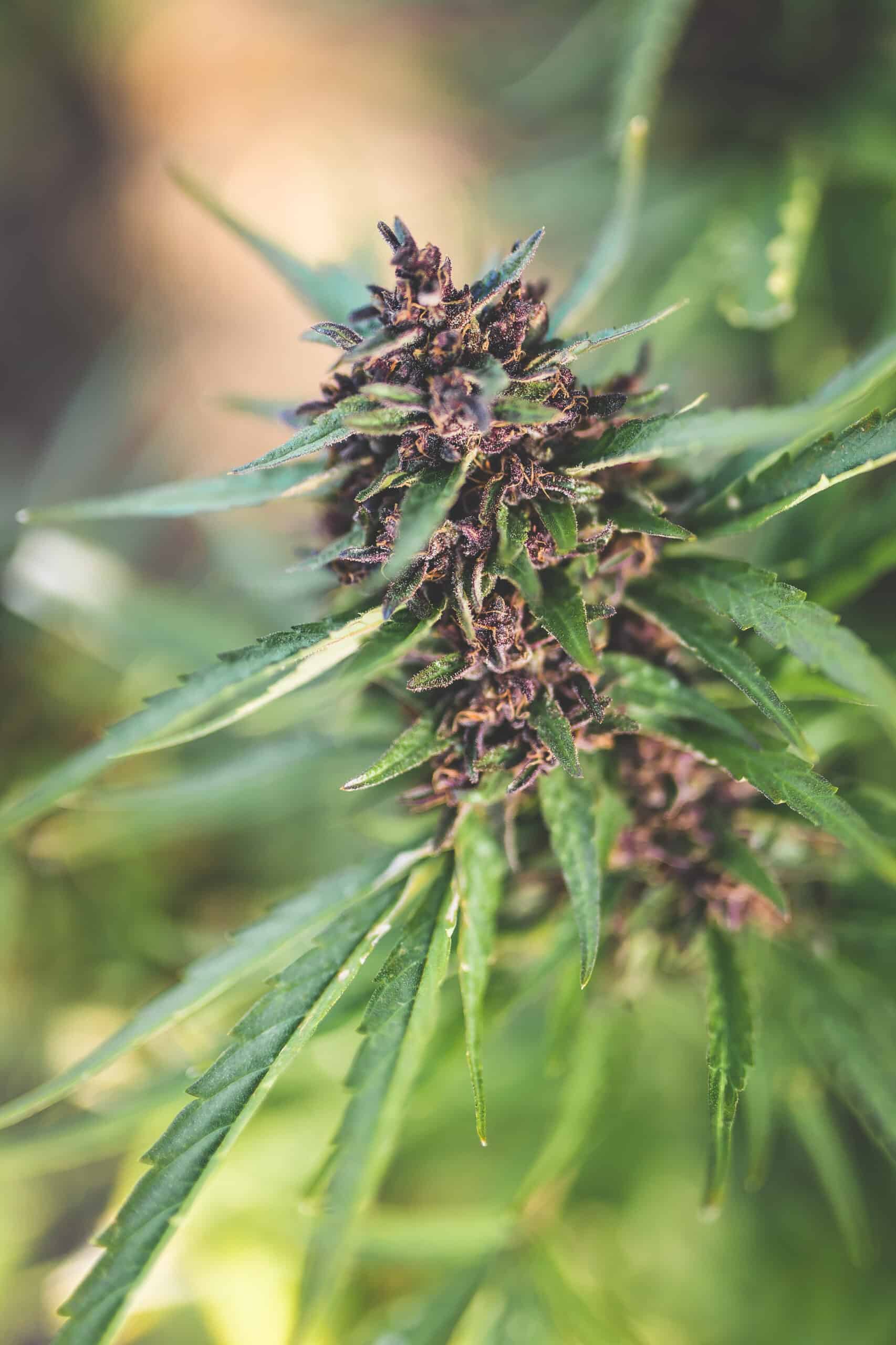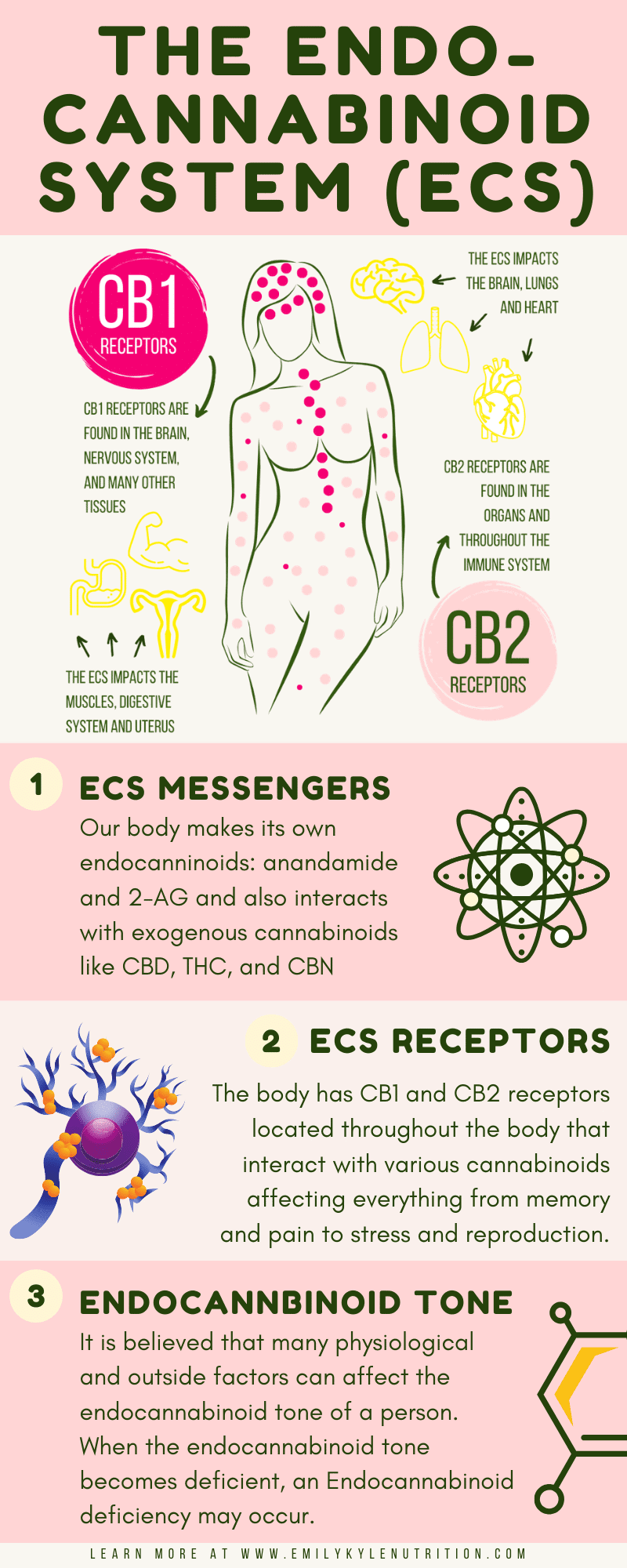Do you or someone you know struggle with managing an autoimmune disorder? Have you ever wondered if an all-natural option like cannabis could help? Here we will explore the potential benefits of cannabis to help manage your most unwanted symptoms and share action steps for how you can get started finding relief today.

Table of Contents
Article Features
- An introduction to your endocannabinoid system
- How this affects your whole body, including the immune system
- Ready to experiment? Shop with me to find everything you need to get started – from topicals, tinctures, and more – ordered online and delivered directly to your door!

Cannabis and Autoimmune Disorders
If you’re here reading this, I can pretty much guarantee that you already know this:
Autoimmune disorders are conditions in which the immune system attacks healthy cells and tissues in the body, causing a wide range of symptoms that can be debilitating and life-altering1.
The incidence of autoimmune disorders is rising, affecting millions of people, including hundreds of members of my Well With Cannabis Community.
The symptoms can be mysterious, and the traditional solutions can be frustrating, leaving more and more people turning to explore natural options on their own.
That’s why you’re here, right?
Thankfully, research is starting to show that cannabinoids from the cannabis plant may be an effective treatment for these conditions.
This research backs up the years and years of anecdotal reports from people who have discovered that cannabis really does help manage their autoimmune condition.
In this guide, we will explore the role of cannabinoids in treating autoimmune disorders and the different ways you can get started experimenting at home.
Cannabinoids From The Plant
First, I want to make sure you know what cannabinoids are.
Cannabinoids are the active compounds found in cannabis, including THC and CBD.
THC is the psychoactive compound that creates a “high,” while CBD is non-psychoactive and has various therapeutic effects.
Other types of cannabinoids have specific effects on the body, such as CBG and CBN.
When consumed, cannabinoids interact with the endocannabinoid system in your body, which regulates almost every bodily process.
These cannabinoids all have different effects on each person, but generally, we consider:
All mammals, including you, have a biological system in your body known as the endocannabinoid system (ECS).
Even though you may have never heard of it before, the ECS affects nearly every aspect of our human experience, from memory and pain relief to stress management and reproduction2.
Your ECS has the ability to work with the cannabinoids and terpenes found in cannabis through endocannabinoid receptors located throughout your body.
The ECS plays an important role; it is designed to help the body maintain homeostasis, or the stability, of its internal environment.
It essentially helps you rest, eat, sleep, and protect.3
When I first learned about my endocannabinoid system, it finally clicked; “so this is why cannabis makes me feel so much better.“
One of the most important parts of your ECS is the cannabinoid receptors known as CB1 and CB2 receptors.
CB1 receptors are mainly found in your brain and central nervous system, while CB2 receptors are found in your immune cells and peripheral tissues.
CB2 receptors have been found to play a significant role in symptom management of autoimmune disorders4.
Specifically, CB2 receptors have been shown to suppress pain, inflammation, and other symptoms5.
For so many people suffering from an autoimmune condition, this is when the lightbulbs start to light up? Is this the connection you’ve been searching for?
This knowledge helps us begin to understand why cannabinoids that target the CB2 receptors may be a promising treatment for autoimmune conditions.

What The Research Says
When I first began researching for my article on Cannabis for Autoimmune Disorders published by CRX, I was very excited to find such promising potential.
Research has shown that cannabinoids may be able to control immune functions and modulate the immune response, which could make them an effective treatment option for a wide range of conditions4.
Many experts, including myself, believe that cannabinoids could represent a significant breakthrough in medical treatment for autoimmune diseases.
While more research is needed to understand the benefits fully, the early results are promising and support years of anecdotal reports by people who use cannabis as an effective treatment.
Anecdotally, people have reported finding relief with both recreational and medical cannabis for the following conditions:
- Rheumatoid arthritis
- Inflammatory bowel disease
- Chron’s disease
- Ulcerative colitis
- Systemic lupus erythematosus
- Diabetes mellitus type 1
- Celiac disease
- Neurological disorders
- Alzheimer’s disease
- Chronic pain and pain management for joint pain
- Chronic inflammation
- Other mysterious symptoms of autoimmune diseases
Ultimately, while we have anecdotal evidence, we lack the clinical evidence and deep cannabinoid research needed to prove the use of cannabinoids as an effective alternative treatment option.
We need more clinical trials and a systematic review of the current literature to determine the effect cannabis has on immune function.

An Endocannabinoid Deficiency
Just like we can experience vitamin and mineral deficiencies, we can experience a clinical endocannabinoid deficiency (CECD).
The CECD theory is a hypothesis proposed by Dr. Ethan Russo that suggests some people may have an underlying cannabinoid deficiency, leading to various health conditions that can affect your body’s immune system6.
The idea behind CECD is that a deficiency in the body’s natural cannabinoids may be at the root of certain autoimmune disorders.
Specifically, the theory proposes that a lack of endocannabinoids, the naturally occurring cannabinoids in the body, can cause imbalances in the ECS.
Studies have shown that CECD is linked to autoimmune conditions, including fibromyalgia, migraines, and irritable bowel syndrome7.
This theory may explain why those suffering from fibromyalgia, IBS, and other autoimmune conditions find relief with cannabis use.
Cannabinoid Treatment
The good news is that early evidence already suggests that active ingredients like CBD and THC can help treat a cannabinoid deficiency.
For example, studies have shown that CBD can decrease pain and improve sleep for patients with suspected CECD8.
For many people, this is a huge benefit because cannabis can provide fewer side effects compared to conventional treatments like prescription medications.
Lifestyle approaches, such as exercise, stress management, and a healthy diet, can also affect the ECS and relieve symptoms.
It’s important to note that cannabinoid treatment in dosage and delivery methods will vary significantly from person to person, given our unique endocannabinoid systems.
It is also essential to know that synthetic cannabinoids are not recommended and may worsen the body’s immune response to a specific product.
If you don’t know where to start, this beginner’s guide to getting started with cannabis is a great place to get started for treating autoimmune diseases.

How to Use Cannabis with Autoimmune Disorders
Equipment
What You Need
- 1 each cannabis journal
Instructions
- Decide if You Need a Card: Getting a medical marijuana card is a personal decision and depends on many different factors, including your ability to access safe products. Depending on where you live, you may not need a medical card, even if you intend medical use of the plant. Learn more about whether a card is right for you or not here.
- Understand Your ECS: It all starts with your endocannabinoid system (ECS). This system is the reason that cannabis works. The main purpose of the ECS is to maintain balance inside your body. On your cannabis journey, you need to be patient and willing to experiment to find what works best for you and your unique ECS.
- Know Your Cannabinoids: It’s important to know that there are over 100 cannabinoids found within the plant, and each one affects us differently. These cannabinoids interact with our ECS to produce a variety of effects. This means that THC will affect you differently than CBD or CBG. To know which cannabinoid is right for you, you will want to experiment with each one to see how it affects you. Starting with low doses of full-spectrum CBD oil is a great place to start. Learn more about the entourage effect and how it can help increase the efficacy of CBD.
- Experiment with Different Strains: The Cannabis Sativa plant produces thousands of strains that can affect you uniquely. You must experiment to find the best strains for your specific condition.
- Choose an Application Method: How you use cannabis will affect how it makes you feel and how long it takes to work.Each one of these methods will affect you differently and have different onset and duration times, so be sure to do your research before getting started.
- Dose Appropriately: When it comes to cannabis, there are no standard dosing recommendations because we all react differently. Therefore, the best option is to follow the golden rule: start low and go slow. This means you start with a relatively low dose, assess your reaction, and slowly increase the dose as needed until you feel the desired outcome. Remember, high doses aren't always better. Use caution with experimenting with alternative treatment options.
- Stay the Course: The truth is, cannabis is not a magic cure for everything, and it might not work the way you want it to the first time. Finding what is right for you may take several attempts with different strains, cannabinoid ratios, application methods, and dosages. And to get the most out of your experience, you will likely need to use the product for several weeks to allow your body time to adjust and assess your progress.
- Record Your Progress: The best way to measure your progress is to record it in a cannabis journal. Like a food diary, this journal will help you track your journey, assess your progress, and make educated decisions if you need to change.Gold Leaf Journal
Notes
Real Inspiration
If you are skeptical about whether cannabis could help you manage your autoimmune condition, I want to introduce you to these incredible people.
Each one of these brave men and women has joined me as a guest on my Well With Cannabis Podcast to talk about how cannabis helps them manage their autoimmune condition and live their best life.
Meet our autoimmune warriors and discover their stories of how cannabis helps them everyday:
- Discover how our very own Chief Happiness Officer, Renée Leonard, manages Hashimoto’s, Sjögren’s syndrome, and fibromyalgia with the help of cannabis.
- Meet Louisa Miller from New Zealand who details how she managed to heal her Crohn’s disease with the help of cannabis.
- Meet Annie Morgan, a brave woman who underwent a bilateral styloidectomy to treat her rare and debilitating Eagle Syndrome.
- Meet Chrissy Curley who was diagnosed with visceral hyperalgesia. She shares her journey toward discovering the benefits of cannabis and how it gave her a new lease on life.
- Meet Carrie Turpin who shares her lifelong journey with debilitating autoimmune conditions including Crohn’s disease starting at the tender age of five.
Conclusion
Whether you are suffering from a chronic illness or simply looking for new ways to improve your overall health and wellness, cannabinoids may be worth exploring as a potential treatment option.
Cannabis may offer a promising treatment option for autoimmune disorders, thanks to its effects on the ECS and CB2 receptors.
By understanding the role of cannabinoids in treating autoimmune disorders, we can take a step toward alleviating the suffering of millions of people affected by these conditions.
The goal is to use cannabis to effectively alleviate your symptoms and improve your overall quality of life.
Shop Now & Get Started Today
Shop with Emily
Shop Now: Bliss Micro Gummies
Shop with Emily
Shop Now: Bliss Cannabutter
Shop with Emily
Shop Now: Bliss Gummies
Shop with Emily














